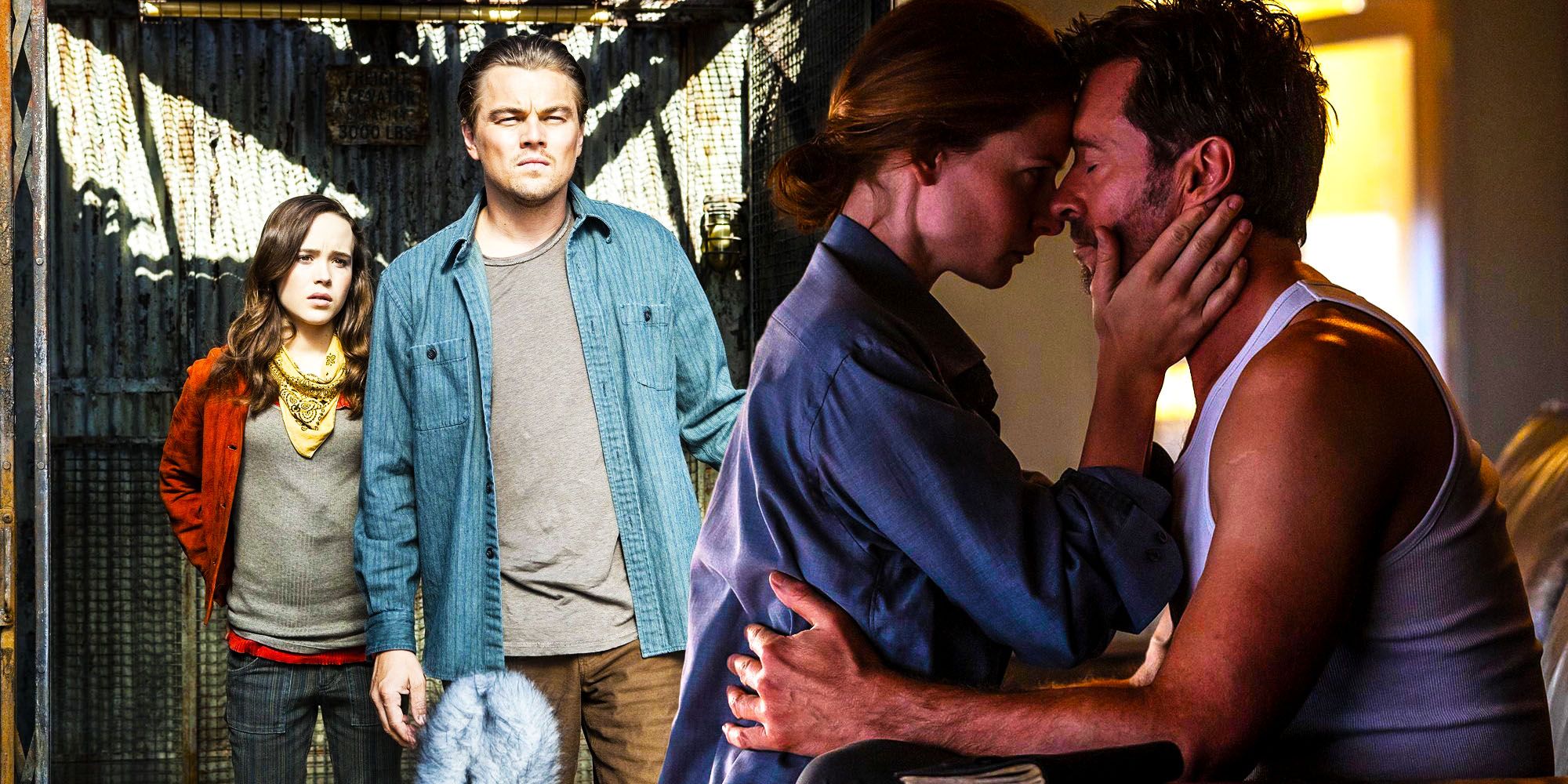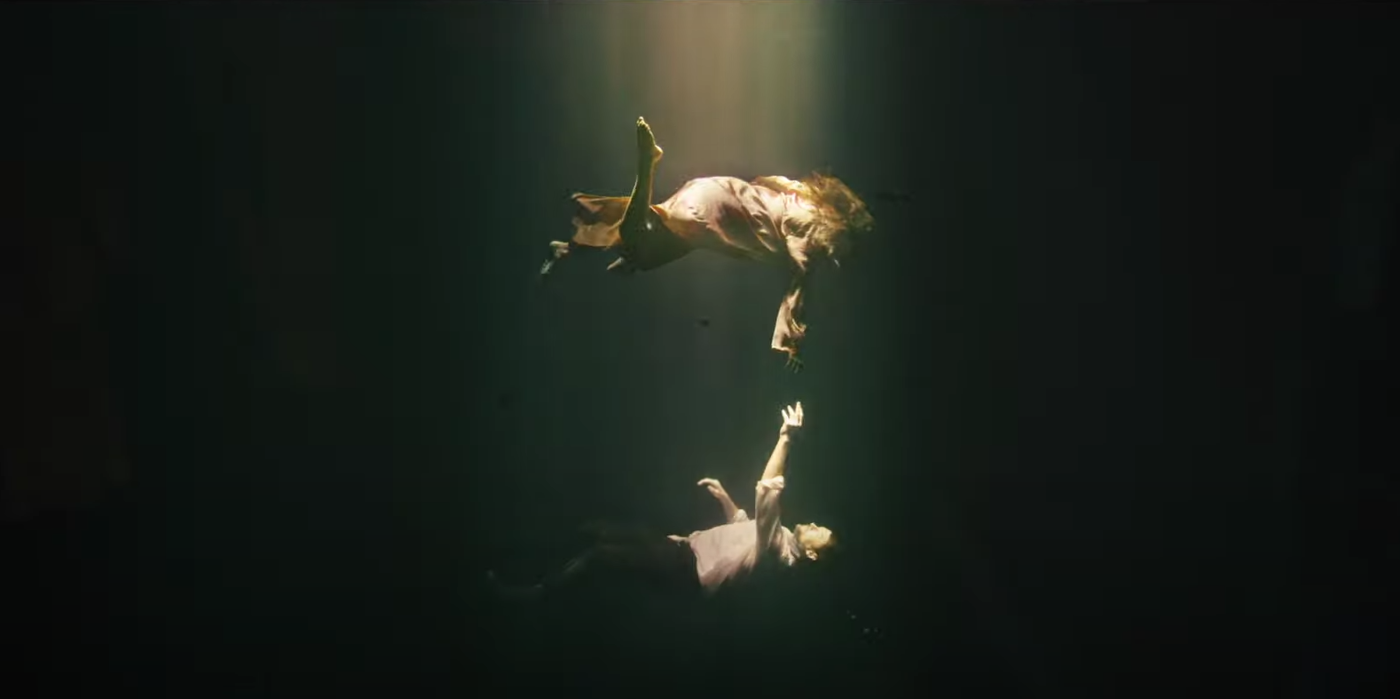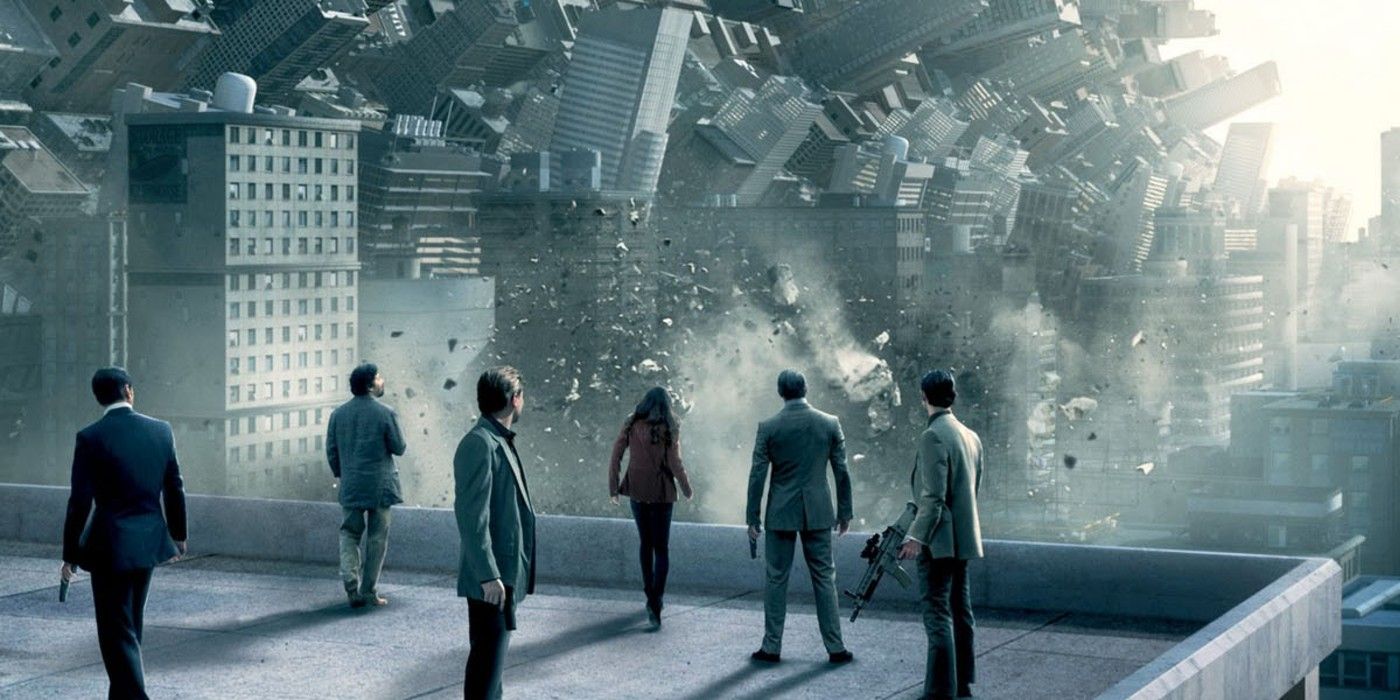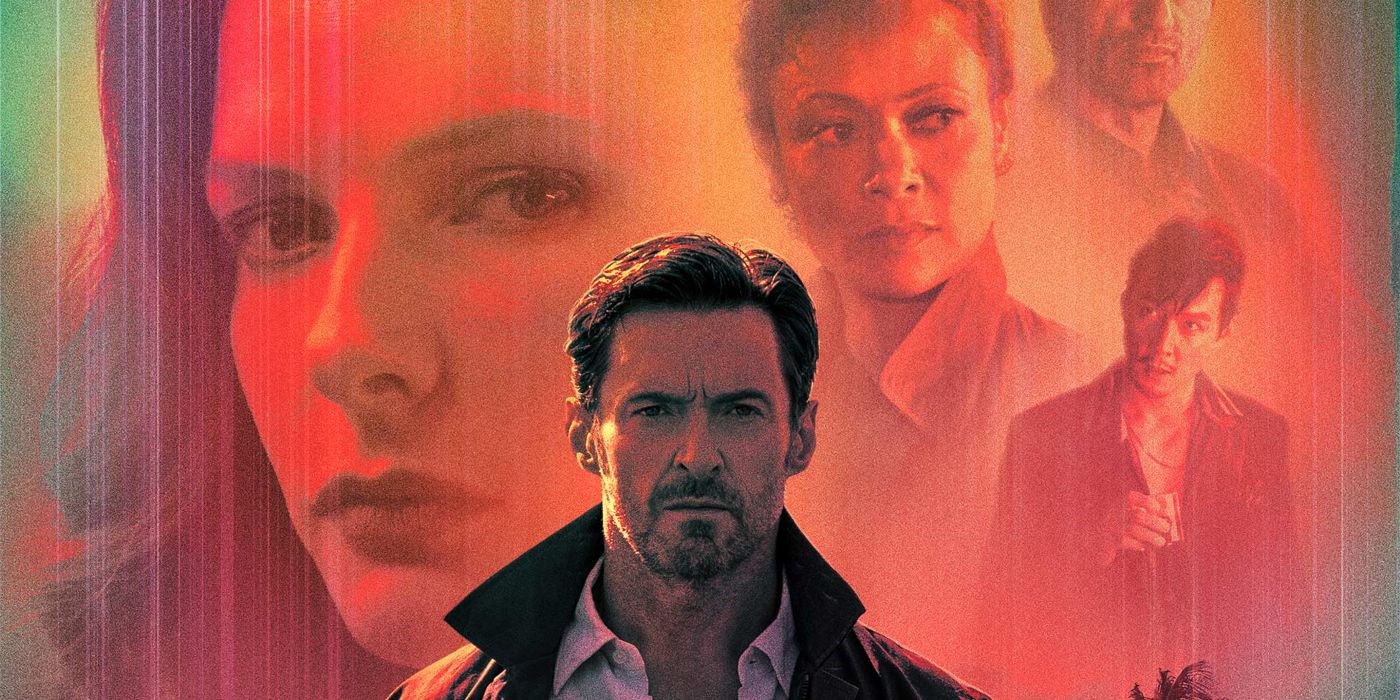Reminiscence has been compared to Christopher Nolan’s Inception since before it even came out, but how similar are the two movies actually? The new neo-noir thriller written and directed by Westworld co-creator Lisa Joy stars Hugh Jackman, Rebecca Ferguson, Thandiwe Newton, Cliff Curtis, Marina de Tavira, and Daniel Wu in an atmospheric mystery about climate change, memory, and betrayal. Reminiscence plays heavily with the tropes and stylings of the noir genre, but its most common point of comparison among viewers and critics has been Inception.
Set in a near-future version of Earth where global climate change has caused coastal cities to flood, Reminiscence follows Nick Bannister (Jackman), a man who runs a business helping people relive happy memories by entering a machine called the tank. The use of memory as an active component in the story creates a layered, at times confusing narrative similar to the dream structure like Cobb's in Inception. However, though the technology and overall conceit of the tank are very similar, the two films also differ in a few major ways.
Inception is widely regarded as one of the most influential films of the 21st century, so comparisons to it are somewhat inevitable in a film with such similar plot conceits as Reminiscence. But are the movies actually that similar, and in what ways? Here’s how Reminiscence compares to Inception, what parts are most similar, and where the two films differ.
Reminiscence’s Memories Vs. Inception’s Dreams
Both Inception and Reminiscence revolve around the use of dreamlike realities induced by sci-fi technology. That plot device takes the form of the dream-sharing machines in Inception, which allow people to enter into one another subconscious. In Reminiscence, the technology is all about memory, allowing users to relive old moments. In concept, both ideas seem similar – turning people’s internal lives and thoughts into narrative opportunities. They also invoke similar themes in both movies of self-indulgent behavior, addiction, and escape. However, the films end up using their dream and memory tech in pretty different ways.
In Inception, the dream tech is the story's foundation. Most of the movie takes place within dreams, and much of the mystery comes from the constantly shifting nature of the dreams and the uncertainty of what is a dream. Reminiscence’s memory tech, while also pivotal to its overall story, is a bit less complicated. The memories experienced by those in the tank are recreated visually for others to see, but they can’t be entered and changed like Inception’s dreams. Sadly, the potential of Reminiscence’s time-traveling memory technology is wasted, as it’s mostly used to explain how certain characters know certain things that they otherwise would have no idea about. Put more simply, in Reminiscence, the memories are a plot device. In Inception, the dreams are the plot.
Reminiscence & Inception Tell The Same Story
In addition to the shared themes of escapism and self-indulgence, Inception and Reminiscence have the same core story at their centers – the story of a man devastated after losing the woman he loves and willing to do anything to see her again. In Inception, the love story of Dom (Leonardo DiCaprio) and Mal Cobb (Marion Cotillard) is more of a side story, which is thrown to the forefront in the film’s final act. Mal haunts Dom, constantly urging him to abandon the real world and return to the dreamscape where she is still alive. Though Dom knows he can’t bring his wife back, he’s driven by the idea of returning to something like what his life was like before she died.
Reminiscence’s Nick goes on a very similar journey, with the main difference being that he doesn’t know what happened to his former lover, Mae (Rebecca Ferguson), until the end of the film. The main beats, however, are largely the same. Nick lives an empty life after losing Mae, constantly searching for a way to find her and becoming increasingly addicted to his own memories in the process. Like at the end of Inception, the relationship between dream/memory and reality is shown through the love story – one that doesn’t exactly end happily for anyone involved.
Inception References In Reminiscence Explained
Beyond the obvious story features of the tragic love story and the futuristic, escapist technology, Inception and Reminiscence have a number of other, smaller similarities. The flooded cities that are part of Reminiscence are strikingly similar in their look to the limbo world of Inception, which also is a devastated metropolis of crumbling buildings and encroaching waterlines. There are also similarities in how the central technology was created, with Inception’s dream-sharing being built for military training and Reminiscence’s tank being used initially as an interrogation tool. And as previously mentioned, both stories deal heavily with themes of addiction, self-destruction, emotional dependency, and trauma.
Biggest Differences Between Inception & Reminiscence
For all the ways in which Reminiscence and Inception are alike, there’s a lot that isn’t comparable. The biggest difference is the root genre and stylings therein. The multi-leveled Inception is a psychological thriller that leans heavily on action sequences, while Reminiscence is a neo-noir through and through. Both have sci-fi elements and plenty of plot twists, but that doesn’t make them the same genre. In addition to its memory technology, Reminiscence builds a whole dystopian world where climate change, land wars, class division, crime, and political corruption all run rampant. Its tropes are the tropes of the noir genre, from the smoky clubs and crime rings to the gruff narration and the rich and greedy villain pulling the strings. Reminiscence’s story really operates on several different levels – the larger tale of a dystopian world in crisis, the love story/noir mystery of Nick’s hunt for Mae, and the sci-fi story of technology awakening new dangers for humanity.
Is Reminiscence a bad movie? No. If anything, comparing the two films demonstrates how a good idea is only as compelling as its execution. The story in Inception is much more self-contained. There’s no worldbuilding or even much explanation at all for how dream sharing actually works. That allows the film to be more focused on Dom’s arc and the unique narrative opportunities afforded by the science fiction elements. Is it a better movie than Reminiscence? Absolutely, in almost every way. Inception executes its high-concept story with near perfection, while Reminiscence, despite a lot of interesting ideas, a thick atmosphere, and a fantastic cast, falls short of its true potential.





